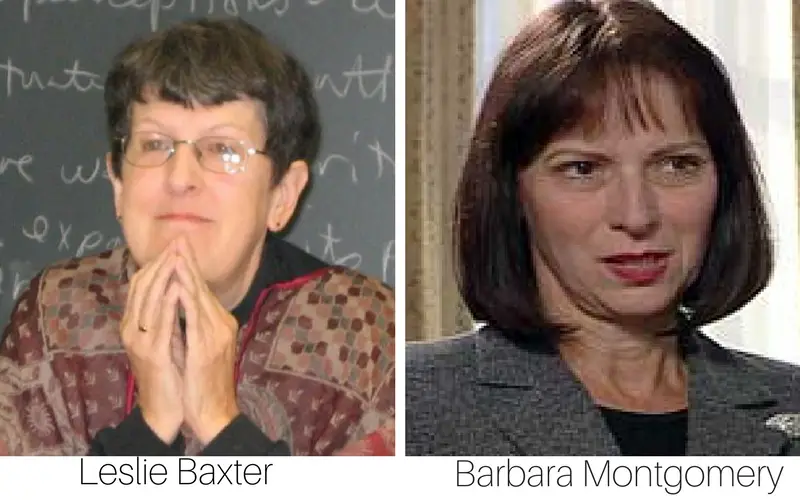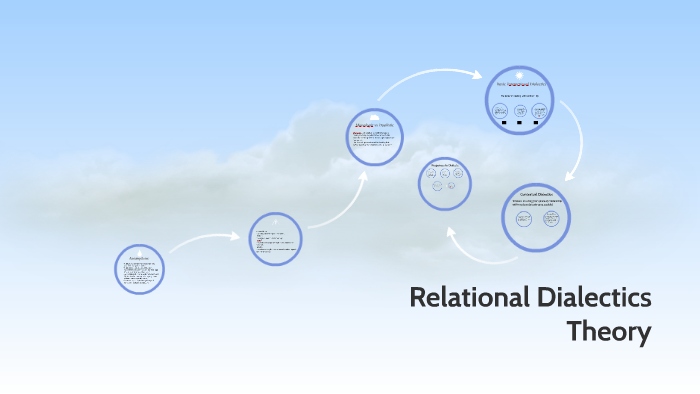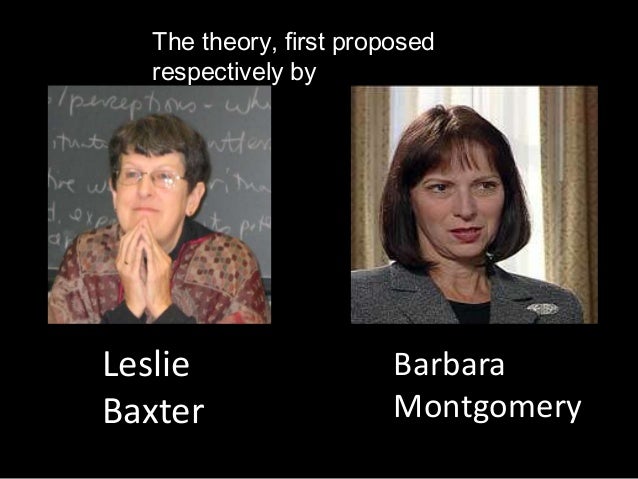
Additionally, rules provide reasons for relationship formation, maintenance, and dissolution. Rules for social interaction have proven helpful in explaining, predicting, interpreting, and evaluating behaviors within various interpersonal contexts. One way to explore social interactions is by examining relational rules. Concurrently, college students are reporting more engagement in FWBRs than ever before. The past decade of research on friends with benefits relationships (FWBR) has highlighted the growing complexities of these types of relationships. I conclude with practical applications for physician and patient training and interprofessional coordination." Moreover, I drew on concepts from relational dialectics theory to capture the various ways radiologists negotiate these dialectics. On performing a dialectical analysis of transcripts from focus group discussions with radiologists, I found them experiencing four primary tensions: (a) between simple and complex ICT (b) between radiologist and patient control (c) between standardized and idiosyncratic practice (involving struggles between documentation and conversational process, and between vague and detailed language use) and (d) between withholding and disclosing alternatives. To foreground the dynamic and dilemmatic tendencies of ICT practice implied by previous inquiries, I advanced relational dialectics theory into the realm of physicians’ experiences with ICT. "Informed consent to treatment (ICT), designed to honor patient autonomy, has been an important subject of inquiry in many disciplines. Further, this study provides researchers theoretical knowledge and evidence regarding how dialectic tensions and strategies function differently across communication contexts. Subsequent analysis illustrates the dialectic nature of teacher strategies used in the classroom, offering insight into how teachers navigate dialectic tensions daily in the classroom.

Findings here extend dialectics into a new instructional context by identifying three supradialectics these teachers experienced, as well as the strategies they report using to assist student learning in light of those dialectics.

Using relational dialectics as a theoretical framework for understanding paradoxes in teaching, we analyzed extensive interview data from 19 postsecondary instructors regarding the learning-oriented dialectics teachers experience and navigate. While educational literature has discussed the paradoxes that teachers experience in the classroom, minimal empirical research has analyzed the strategies teachers employ to address these paradoxes. What keeps their relationship bonded are themes of trust, utang na loob, and permanence of their parent-child relationship.Navigating contradiction represents an integral part of the teaching process. Certainty-uncertainty surfaced as the most prominent and unsettling conflict parents and children go through. Results showed how communication is the medium of parents and children as they negotiate the multiple dialectical tensions in their relationship.
#RELATIONAL DIALECTIC THEORY PROFESSIONAL#
Parents and children drew from familial and professional constructs as they interacted with each other, creating a working relationship that is more nuanced than a simple merging of the two systems.

Parents and their children from 10 family businesses located across Metro Manila, Rizal, Bulacan, Zambales, Laguna, and Davao del Sur were interviewed. What happens when family members also have a professional relationship with each other? This thesis examined, through Baxter and Montgomery’s (1996) Relational Dialectics Theory, how parents and their children navigate the competing and complementary expectations and norms of family and business relationships as they work with each other in their small family business. Unpublished Undergraduate Thesis, University of the Philippines College of Mass Communication. A Relational Dialectic Approach to Understanding Parent-Child Daily Conflict Management in Small Philippine Family Businesses.


 0 kommentar(er)
0 kommentar(er)
